Fleurs du Mal Magazine


Or see the index
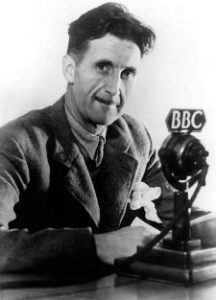
Sometimes In The Middle Autumn Days
Sometimes in the middle autumn days,
The windless days when the swallows have flown,
And the sere elms brood in the mist,
Each tree a being, rapt, alone,
I know, not as in barren thought,
But wordlessly, as the bones know,
What quenching of my brain, what numbness,
Wait in the dark grave where I go.
And I see the people thronging the street,
The death-marked people, they and I
Goalless, rootless, like leaves drifting,
Blind to the earth and to the sky;
Nothing believing, nothing loving,
Not in joy nor in pain, not heeding the stream
Of precious life that flows within us,
But fighting, toiling as in a dream.
O you who pass, halt and remember
What tyrant holds your life in bond;
Remember the fixed, reprieveless hour,
The crushing stroke, the dark beyond.
And let us now, as men condemned,
In peace and thrift of time stand still
To learn our world while yet we may,
And shape our souls, however ill;
And we will live, hand, eye and brain,
Piously, outwardly, ever-aware,
Till all our hours burn clear and brave
Like candle flames in windless air;
So shall we in the rout of life
Some thought, some faith, some meaning save,
And speak it once before we go
In silence to the silent grave.
George Orwell
(1903 – 1950)
Sometimes In The Middle Autumn Days
First published by The Adelphi, March 1933
• fleursdumal.nl magazine
More in: 4SEASONS#Autumn, Archive O-P, Archive O-P, George Orwell, Orwell, George

Een schoon gezicht . . .
Een schoon gezicht heeft de dagblad-postiche
CREME LA NYMPHE
zij zou zeer schoon zijn indien
zij geen sproeten had
Hoe jammer wanneer een zo schone vrouw sproeten heeft
zomersproeten
zoals bij deze postiche het geval is
gebekt haar
de boog van de wenkbrauwen
en de lieve mond
en de volle wangen
en de kuiltjes
doch zoals gezegd
hoe jammer die zomersproeten
Nochtans heb je
CREME LA NYMPHE
hoofdapoteek bijhuizen overal verkrijgbaar
het jammer kan worden verwijderd
dank zij de hoofdapoteek en de bijhuizen
zijn er op de wereld geen sproeten meer
en u
allerschoonste met gekruld haar en verlokkelike lippen
u
die prijkt op de laatste bladzijde
van het laatste nieuws
kan ik beminnen
omdat gij dank de nimfezalf
voortaan zult zijn
zonder sproeten
of zomersproeten
Paul van Ostaijen
(1896 – 1928)
Een schoon gezicht . . .
• fleursdumal.nl magazine
More in: Archive O-P, Archive O-P, Expressionism, Expressionisme, Ostaijen, Paul van, Paul van Ostaijen
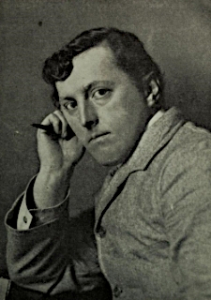
Poems
No Muse will I invoke; for she is fled!
Lo! where she sits, breathing, yet all but dead.
She loved the heavens of old, she thought them fair;
And dream’d of Gods in Tempe’s golden air.
For her the wind had voice, the sea its cry;
She deem’d heroic Greece could never die.
Breathless was she, to think what nymphs might play
In clear green depths, deep-shaded from the day;
She thought the dim and inarticulate god
Was beautiful, nor knew she man a sod;
But hoped what seem’d might not be all untrue,
And feared to look beyond the eternal blue.
But now the heavens are bared of dreams divine.
Still murmurs she, like Autumn, ´This was mine!’
How should she face the ghastly, jarring Truth,
That questions all, and tramples without ruth?
And still she clings to Ida of her dreams,
And sobs, ´Ah! let the world be what it seems!’
Then the shy nymph shall softly come again;
The world, once more, make music for her pain.
For, sitting in the dim and ghostly night,
She fain would stay the strong approach of light;
While later bards cleave to her, and believe
That in her sorrow she can still conceive!
Oh, let her dream; still lovely is her sigh;
Oh, rouse her not, or she shall surely die.
Stephen Phillips
(1864 – 1915)
Poems
• fleursdumal.nl magazine
More in: #Editors Choice Archiv, Archive O-P, Archive O-P
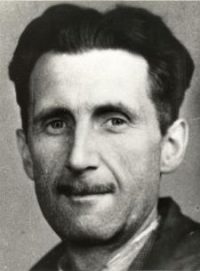
The Italian Soldier
Shook My Hand
The Italian soldier shook my hand
Beside the guard-room table;
The strong hand and the subtle hand
Whose palms are only able
To meet within the sounds of guns,
But oh! what peace I knew then
In gazing on his battered face
Purer than any woman’s!
For the flyblown words that make me spew
Still in his ears were holy,
And he was born knowing that I had learned
Out of books and slowly.
The treacherous guns had told their tale
And we both had bought it,
But my gold brick was made of gold –
Oh! who ever would have thought it?
Good luck go with you, Italian soldier!
But luck is not for the brave;
What would the world give back to you?
Always less than you gave.
Between the shadow and the ghost,
Between the white and the red,
Between the bullet and the lie,
Where would hide your head?
For where is Manuel Gonzalez,
And where is Pedro Aguilar,
And where is Ramon Fenellosa?
The earthworms know where they are.
Your name and your deeds were forgotten
Before your bones were dry,
And the lie that slew you is buried
Under a deeper lie;
But the thing that I saw in your face
No power can disinherit:
No bomb that ever burst
Shatters the crystal spirit.
George Orwell
(1903 – 1950)
The Italian Soldier Shook My Hand
• fleursdumal.nl magazine
Taken from ‘Looking Back on the Spanish War’, published by New Road, 1943. Poem written 1939
More in: Archive O-P, Archive O-P, George Orwell, Orwell, George

Orestes
Me in far lands did Justice call, cold queen
Among the dead, who after heat and haste
At length have leisure for her steadfast voice,
That gathers peace from the great deeps of hell.
She call’d me, saying: ‘I heard a cry by night!
Go thou, and question not; within thy halls
My will awaits fulfilment. Lo, the dead
Cries out before me in the under-world.
Seek not to justify thyself: in me
Be strong, and I will show thee wise in time;
For, though my face be dark, yet unto those
Who truly follow me through storm or shine,
For these the veil shall fall, and they shall see
They walked with Wisdom, though they knew her not.’
So sped I home; and from the under-world
Forever came a wind that fill’d my sails,
Cold, like a spirit! and ever her still voice
Spoke over shoreless seas and fathomless deeps,
And in great calms, as from a colder world;
Nor slack’d I sail by day, nor yet when night
Fell on my running keel, and now would burn,
With all her eyes, my errand into me.
So sped I on, fill’d with a voice divine:
And hardly wist I whom I was to slay,
My mother! but a vague, heroic dream
Possess’d me; fired to do the will of gods,
I lost the man in minister of Heaven;
Nor took I note of sandbank, nor of storm,
Nor of the ocean’s thunders, when the shores
All round had faded, leaving me alone:
I knew I could not die, till I had slain!
But, when I came once more upon the land
That rear’d me, all the sweetness of old days
Came back on me: I stood, as from a dream
Waked to a sudden, sad reality.
And when, far off, I saw those ancient towers,
The palaces and places of my youth,
I long’d to fall into my mother’s arms,
And tell a thousand tales of near escapes.
And lo! the nurse, that fondled me of yore,
Fell with glad tears upon my neck, and told
How she, and how my mother, all this while
Had dream’d of all I was to do, and said
How dear I should be to my mother’s eyes.
Her words shook me, but shook not my resolve.
For even then there came that sterner voice,
Echoing to what was highest in the soul.
Then, like to those who have a work on earth,
And put far from them lips of wife or child,
And gird them to the accomplishment; so I
Strode in, nor saw at all mine ancient halls;
And struck my father’s murderess, not my mother.
And, when I had smitten, lo, the strength of gods
Pass’d from me, and the old, familiar halls
Reel’d back on me; dim statues, that of old
Holding my mother’s hand I marvell’d at,
And questioned her of each. And she lies there,
My mother! ay, my mother now; O hair
That once I play’d with in these halls! O eyes
That for a moment knew me as I came,
And lighten’d up, and trembled into love;
The next were darkened by my hand! Ah me!
Ye will not look upon me in that world.
Yet thou, perchance, art happier, if thou go’st
Into some land of wind and drifting leaves,
To sleep without a star; but as for me,
Hell hungers, and the restless Furies wait.
Then the dark Curse, that sits upon the towers,
Bow’d down her awful head, thus satisfied,
And I fled forth, a murderer, through the world.
Stephen Phillips
(1864 – 1915)
Orestes
• fleursdumal.nl magazine
More in: #Editors Choice Archiv, Archive O-P, Archive O-P
Bob Dylan’s iconic 1962 song “A Hard Rain’s A-Gonna Fall” stands at the crossroads of musical and literary traditions.
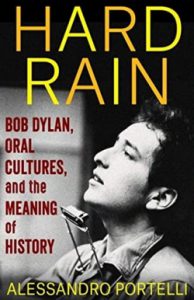 A visionary warning of impending apocalypse, it sets symbolist imagery within a structure that recalls a centuries-old form. Written at the height of the 1960s folk music revival amid the ferment of political activism, the song strongly resembles—and at the same time reimagines—a traditional European ballad sung from Scotland to Italy, known in the English-speaking world as “Lord Randal.”
A visionary warning of impending apocalypse, it sets symbolist imagery within a structure that recalls a centuries-old form. Written at the height of the 1960s folk music revival amid the ferment of political activism, the song strongly resembles—and at the same time reimagines—a traditional European ballad sung from Scotland to Italy, known in the English-speaking world as “Lord Randal.”
Alessandro Portelli explores the power and resonance of “A Hard Rain’s A-Gonna Fall,” considering the meanings of history and memory in folk cultures and in Dylan’s work. He examines how the ballad tradition to which “Lord Randal” belongs shaped Dylan’s song and how Dylan drew on oral culture to depict the fears and crises of his own era. Portelli recasts the song as an encounter between Dylan’s despairing vision, which questions the meaning and direction of history, and the message of resilience and hope for survival despite history’s nightmares found in oral traditions.
A wide-ranging work of oral history, Hard Rain weaves together interviews from places as varied as Italy, England, and India with Portelli’s autobiographical reflections and critical analysis, speaking to the enduring appeal of Dylan’s music. By exploring the motley traditions that shaped Dylan’s work, this book casts the distinctiveness and depth of his songwriting in a new light.
Alessandro Portelli is professor emeritus of American literature at the University of Rome and was for many years a faculty member of the Columbia Oral History Summer Institute. His books include The Text and the Voice: Writing, Speaking, Democracy, and American Literature (Columbia, 1994) and They Say in Harlan County: An Oral History (2011).
Alessandro Portelli:
Hard Rain.
Bob Dylan, Oral Cultures,
and the Meaning of History
Pub Date: May 2022
Columbia University Press
ISBN: 9780231205931
200 Pages
Format: Paperback
List Price: £20.00
• fleursdumal.nl magazine
More in: # Music Archive, - Book News, - Bookstores, Archive C-D, Archive C-D, Archive O-P, Art & Literature News, AUDIO, CINEMA, RADIO & TV, Bob Dylan, Dylan, Bob, Literary Events
This book of poetry is a song for the plight and pride of immigrants around the globe, including the U.S., China, Syria, Honduras, Guatemala, Nepal, Tibet and other places.
 Whether they pull up their roots to flee war, the rising sea or drought, for religious freedom and freedom of speech, or simply to seek a better life, immigrants are the frontiers of civilization.
Whether they pull up their roots to flee war, the rising sea or drought, for religious freedom and freedom of speech, or simply to seek a better life, immigrants are the frontiers of civilization.
They are a force of nature, like salmon, monarchs, trees, water, and mountains, moving with rivers, the earth and universe.
Migration is the signature of life – no immigrants, no economy; no immigration, no civilization; no migration, no life.
We are all immigrants.
Wang Ping is Poet, professor, photographer, installation artist, author of 14 books and dancer.
My Name is Immigrant
by Wang Ping (Author)
Publisher: Hanging Loose Press (May 4, 2020)
Language: English
128 pages
ISBN-10: 1934909661
ISBN-13: 978-1934909669
2020
Paperback
$17.46
• fleursdumal.nl magazine
More in: #Editors Choice Archiv, - Book News, - Bookstores, Archive O-P, Archive O-P

A Dream
My dead love came to me, and said,
‘God gives me one hour’s rest,
To spend with thee on earth again:
How shall we spend it best?’
‘Why, as of old,’ I said; and so
We quarrell’d, as of old:
But, when I turn’d to make my peace,
That one short hour was told.
Stephen Phillips
(1864 – 1915)
A Dream
• fleursdumal.nl magazine
More in: #Editors Choice Archiv, Archive O-P, Archive O-P
Exquisitely sharp, deeply humane and brutally hilarious, Toy Fights is a future classic from one of the greatest writers of his generation.
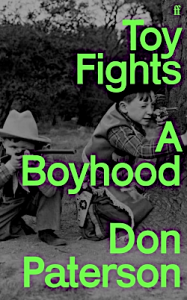 This is a book about family, money and music but also about schizophrenia, hell, narcissists, debt and the working class, anger, swearing, drugs, books, football, love, origami, the peculiar insanity of Dundee, sugar, religious mania, the sexual excesses of the Scottish club band scene and, more generally, the lengths we go to not to be bored.
This is a book about family, money and music but also about schizophrenia, hell, narcissists, debt and the working class, anger, swearing, drugs, books, football, love, origami, the peculiar insanity of Dundee, sugar, religious mania, the sexual excesses of the Scottish club band scene and, more generally, the lengths we go to not to be bored.
Don Paterson was born in Dundee, Scotland, in 1963. He spent his boyhood on a council housing estate.
When he wasn’t busy dreading his birthdays, dodging kids who wanted to kill him in a game of Toy Fights, working with his country-and-western singer dad, screwing up in the Boys’ Brigade, obsessing over God, origami, The Osmonds, stamps, sex or Scottish football cards, he was developing a sugar addiction, failing his exams, playing guitar, falling in love, dodging employment and descending into madness.
While he didn’t manage to figure out who he was meant to be, the first twenty years of his life – before he took a chance, packed his guitar and boarded a train to London – did, for better or worse, shape who he would become.
Don Paterson was born in Dundee in 1963. His previous poetry collections include Nil Nil, God’s Gift to Women, Landing Light, Rain and 40 Sonnets. He has also published two books of aphorism, as well as translations of Antonio Machado and Rainer Maria Rilke. His poetry has won many awards, including the Whitbread Poetry Prize, the Geoffrey Faber Memorial Prize and all three Forward Prizes; he is currently the only poet to have won the T. S. Eliot Prize twice. He was awarded the Queen’s Gold Medal for Poetry in 2009. He is a Fellow of the Royal Society of Literature, the English Association and the Royal Society of Edinburgh, and is currently Professor of Poetry at the University of St Andrews. Since 1997 he has been poetry editor at Picador Macmillan, and he also works as a jazz musician and composer. He lives in Edinburgh.
Toy Fights: A Boyhood
by Don Paterson (Author)
Memoir
Publisher: Liveright
July 11, 2023
Language: English
Hardcover: 384 pages
ISBN-10: 1324093625
ISBN-13: 978-1324093626
$27.95
• fleursdumal.nl magazine
More in: #Biography Archives, - Book News, - Bookstores, Archive O-P, Archive O-P, Art & Literature News
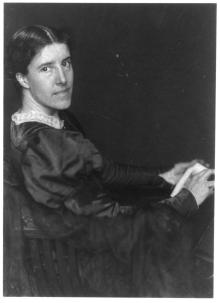
Women Do Not Want It
When the woman suffrage argument first stood upon its legs,
They answered it with cabbages, they answered it with eggs,
They answered it with ridicule, they answered it with scorn,
They thought it a monstrosity that should not have been born.
When the woman suffrage argument grew vigorous and wise,
And was not to be answered by these opposite replies,
They turned their opposition into reasoning severe
Upon the limitations of our God-appointed sphere.
We were told of disabilities–a long array of these,
Till one could think that womanhood was merely a disease;
And “the maternal sacrifice” was added to the plan
Of the various sacrifices we have always made–to man.
Religionists and scientists, in amity and bliss,
However else they disagreed, could all agree on this,
And the gist of all their discourse, when you got down in it,
Was–we could not have the ballot because we were not fit!
They would not hear the reason, they would not fairly yield,
They would not own their arguments were beaten in the field;
But time passed on, and someway, we need not ask them how,
Whatever ails those arguments–we do not hear them now!
You may talk of suffrage now with an educated man,
And he agrees with all you say, as sweetly as he can:
‘T would be better for us all, of course, if womanhood was free;
But “the women do not want it”–and so it must not be!
‘T is such a tender thoughtfulness! So exquisite a care!
Not to pile on our frail shoulders what we do not wish to bear!
But, oh, most generous brother! Let us look a little more–
Have we women always wanted what you gave to us before?
Did we ask for veils and harems in the Oriental races?
Did we beseech to be “unclean,” shut out of sacred places?
Did we beg for scolding bridles and ducking stools to come?
And clamour for the beating stick no thicker than your thumb?
Did we ask to be forbidden from all the trades that pay?
Did we claim the lower wages for a man’s full work today?
Have we petitioned for the laws wherein our shame is shown:
That not a woman’s child–nor her own body–is her own?
What women want has never been a strongly acting cause,
When woman has been wronged by man in churches, customs, laws;
Why should he find this preference so largely in his way,
When he himself admits the right of what we ask today?
Charlotte Perkins Gilman
(1860-1935)
Women Do Not Want It
Suffrage Songs and Verses
• fleursdumal.nl magazine
More in: #Editors Choice Archiv, Archive O-P, Archive O-P, Feminism, The Ideal Woman
« Ce que je veux moi, c’est porter le prénom que j’ai reçu à la naissance. Sans le cacher, sans le maquiller, sans le modifier. Sans en avoir peur. »
Elle est née Polina, en France elle devient Pauline. Quelques lettres et tout change.
 À son arrivée, enfant, à Saint-Étienne, au lendemain de la chute de l’URSS, elle se dédouble : Polina à la maison, Pauline à l’école.
À son arrivée, enfant, à Saint-Étienne, au lendemain de la chute de l’URSS, elle se dédouble : Polina à la maison, Pauline à l’école.
Vingt ans plus tard, elle vit à Montreuil. Elle a rendez-vous au tribunal de Bobigny pour tenter de récupérer son prénom.
Ce premier roman est construit autour d’une vie entre deux langues et deux pays.
D’un côté, la Russie de l’enfance, celle de la datcha, de l’appartement communautaire où les générations se mélangent, celle des grands-parents inoubliables et de Tiotia Nina.
De l’autre, la France, celle de la materneltchik, des mots qu’il faut conquérir et des Minikeums.
Drôle, tendre, frondeur, Tenir sa langue révèle une voix hors du commun.
Tenir sa langue
de Polina Panassenko
Éditeur: Olivier
Langue: Français
Livre grand format
19 août 2022
192 pages
ISBN-10: 2823619593
ISBN-13: 978-2823619591
Broché
€ 18,00
• fleursdumal.nl magazine
More in: - Book News, - Bookstores, Archive O-P
Her sensual Nanas—buxom, colorful female figures— laid the foundation for her international success beyond the art world: Niki de Saint Phalle.
 But the self-taught artist’s creative spectrum is much broader, and her unconventional oeuvre, ranging from painting and drawing to assemblages, performances, theater, film, and architecture, is more subversive and critical of society than is widely assumed.
But the self-taught artist’s creative spectrum is much broader, and her unconventional oeuvre, ranging from painting and drawing to assemblages, performances, theater, film, and architecture, is more subversive and critical of society than is widely assumed.
Based on her efforts to process her own feelings, she addressed social and political issues, critically questioning institutions and role models in ways that are as relevant today as they have ever been.
The exhibition and the publication shed new light on the artist’s exceptional personality and uncover the wide-ranging oeuvre of the popular outsider—that is always surprising and eccentric, emotional, dark and brutal, humorous and cheerful.
NIKI DE SAINT PHALLE (1930–2002) is one of the most important artists and sculptors of her generation. Growing up in Paris and New York, she returned to Paris in the 1950s, where she began her artistic career with her legendary Tirs, her “shooting” series, created during provocative performances.
EXHIBITIONS
Kunsthaus Zürich
September 2, 2022–January 8, 2023
Schirn Kunsthalle Frankfurt
February 3–May 21, 2023
Museumsshop Kunsthaus Zürich
Niki de Saint Phalle
[exhibition catalog in German]
Text(s) by Christoph Becker, Bice Curiger, Katharina Dohm, Sandra Gianfreda, Cathérine Hug, Mickry 3, Nicolas Party, graphic design by Lena Huber, ed. Zürcher Kunstgesellschaft / Kunsthaus Zürich, Schirn Kunsthalle Frankfurt
Niki de Saint Phalle
Ed. Zürcher Kunstgesellschaft,
Kunsthaus Zürich,
Schirn Kunsthalle Frankfurt
240 pages,
195 illustrations
23,5 x 29 cm, soft cover
Lay-Flat Binding with Flaps
ISBN 978-3-7757-5299-2
German
€ 44.00
• fleursdumal.nl magazine
More in: - Book News, - Bookstores, Archive O-P, Exhibition Archive, Jean Tinguely & Niki de Saint Phalle
Thank you for reading Fleurs du Mal - magazine for art & literature